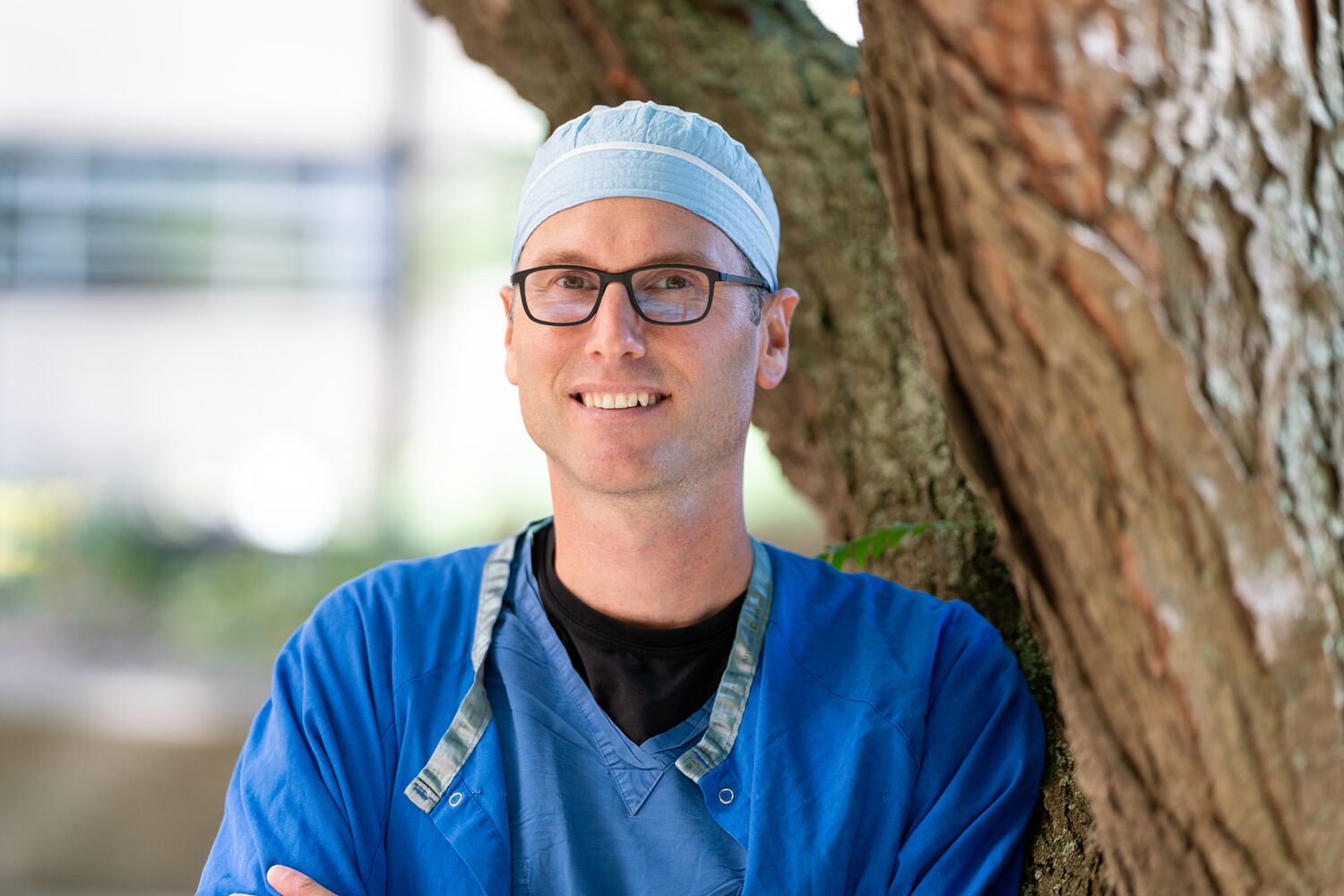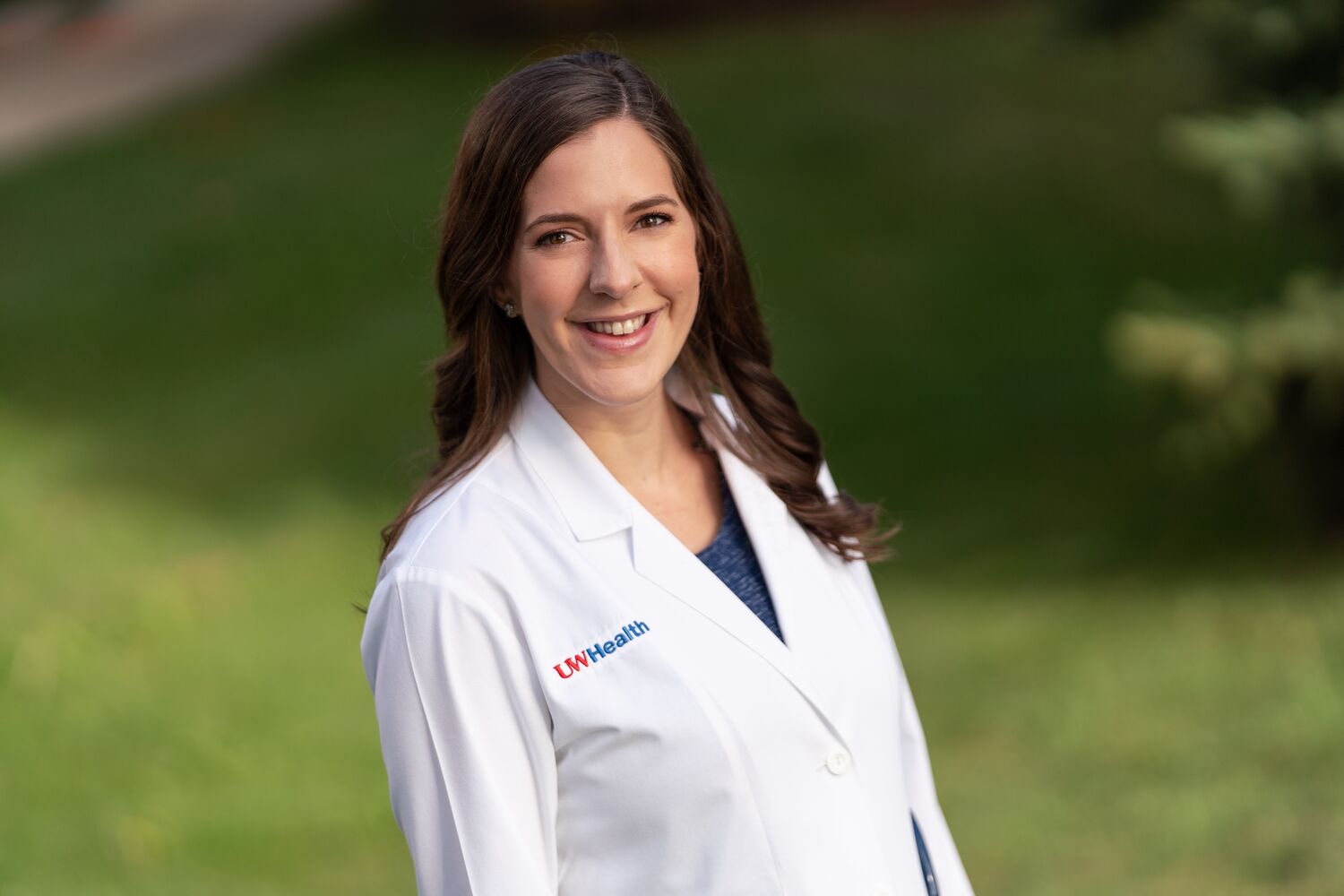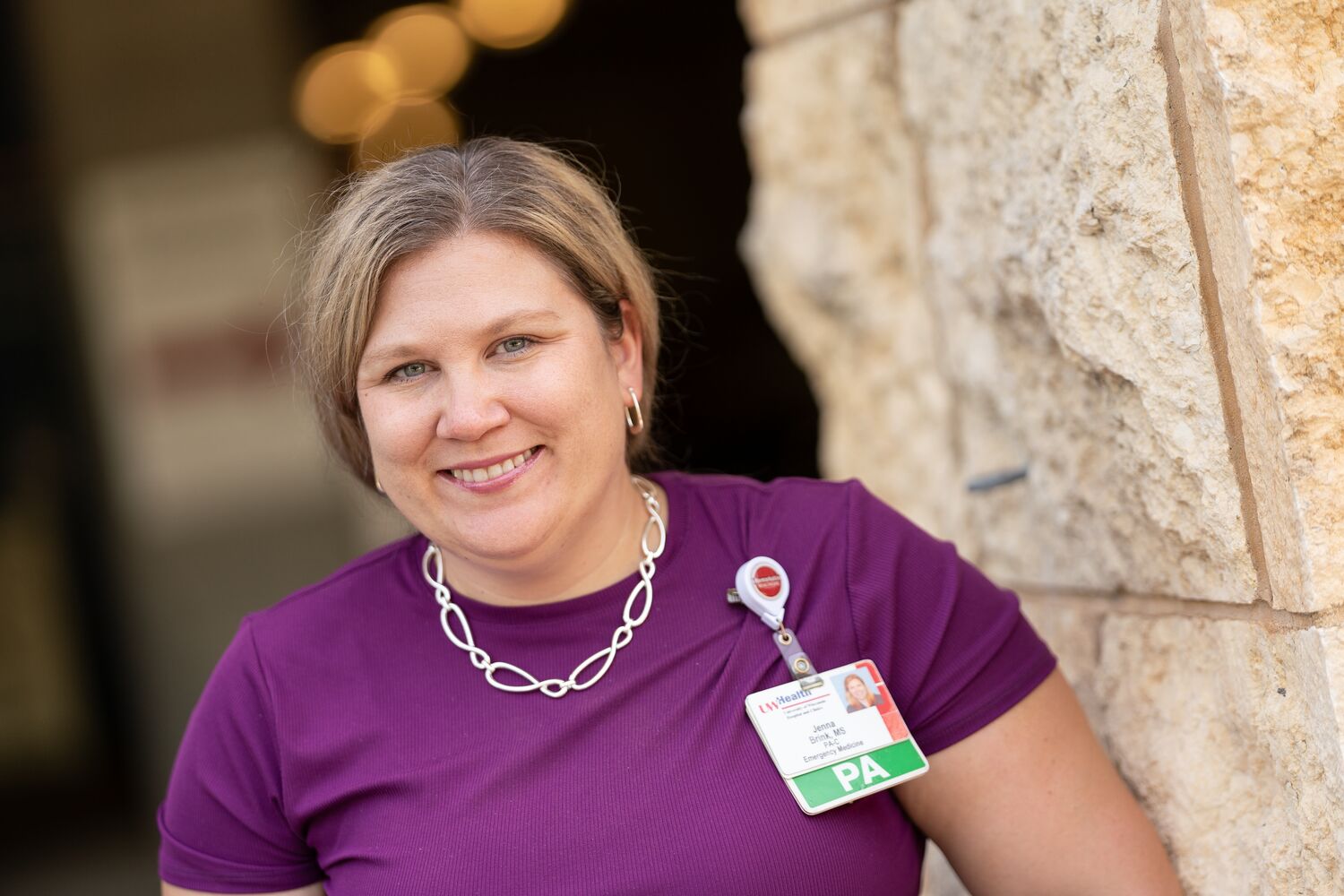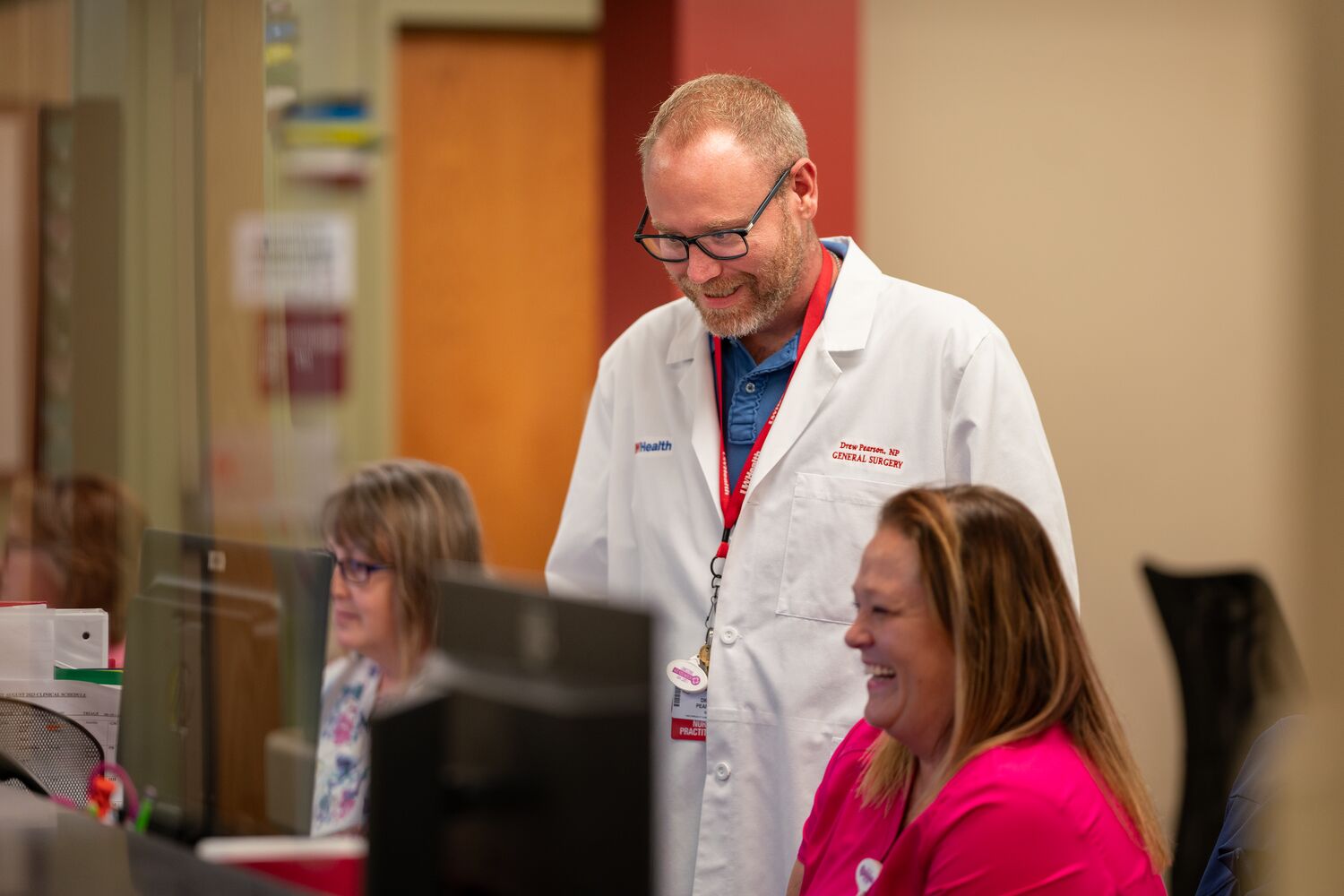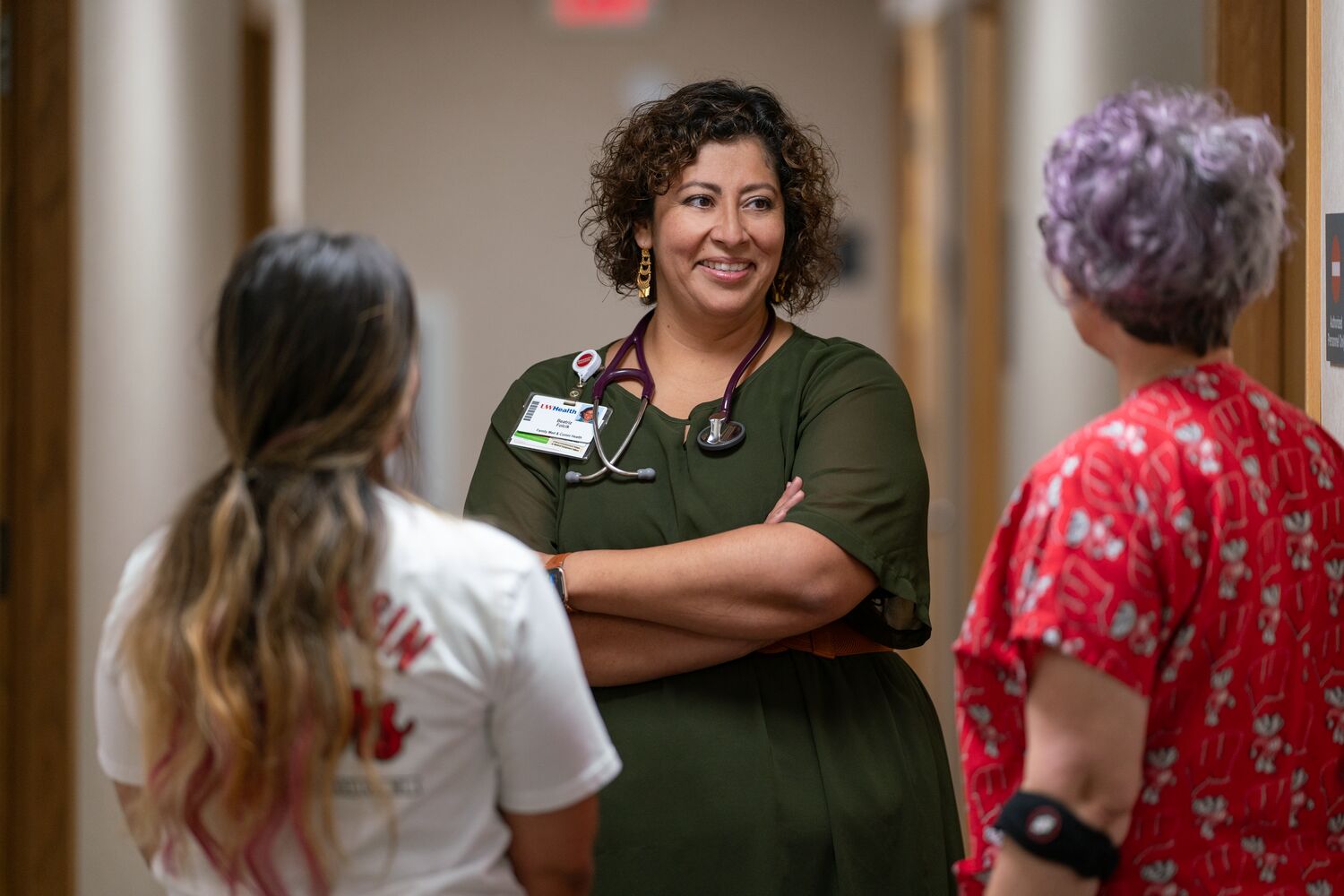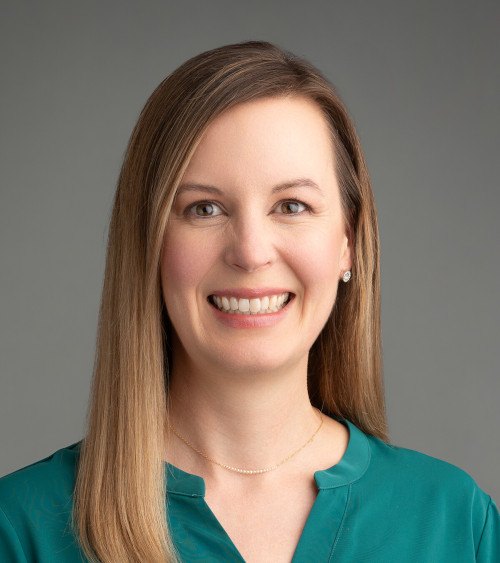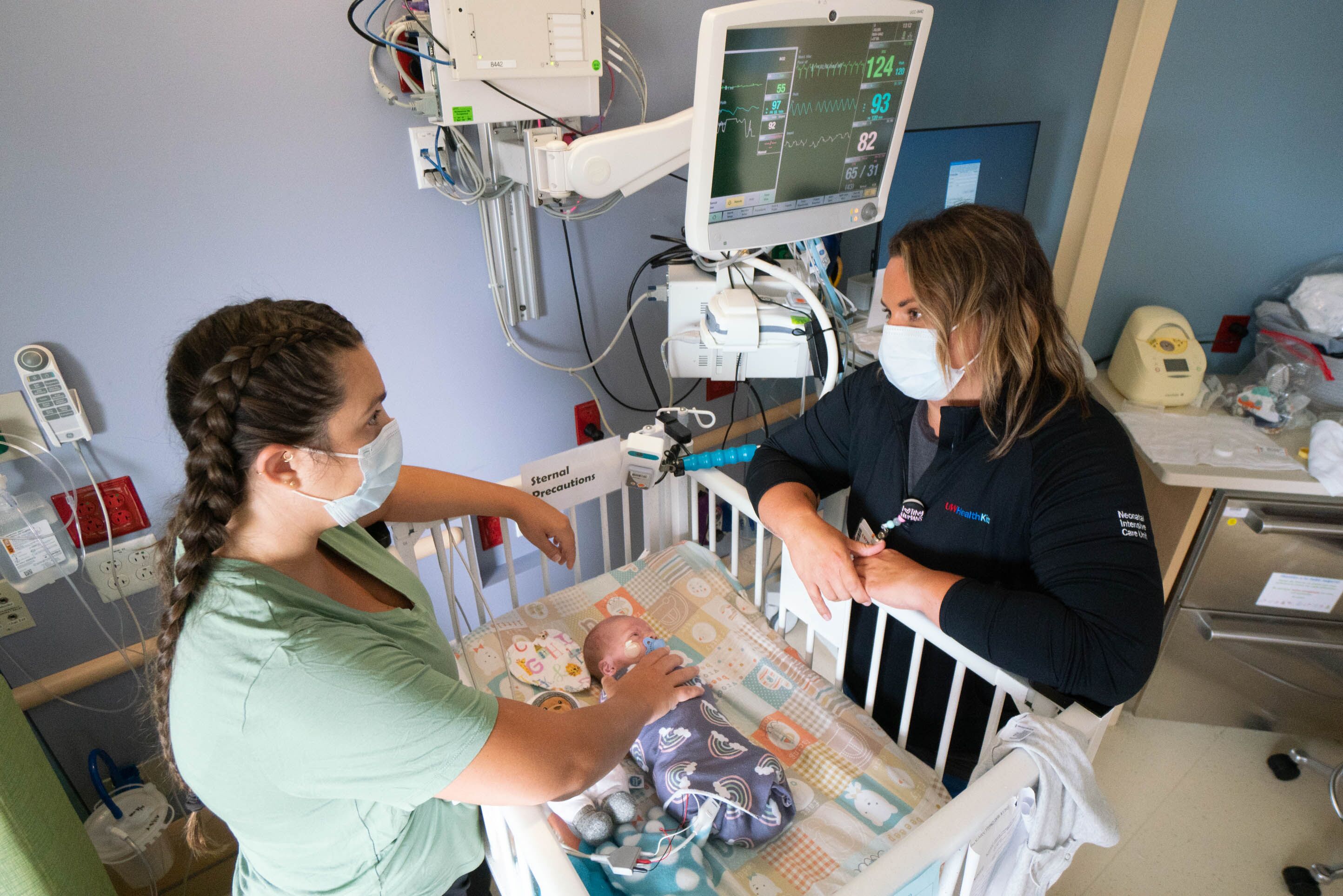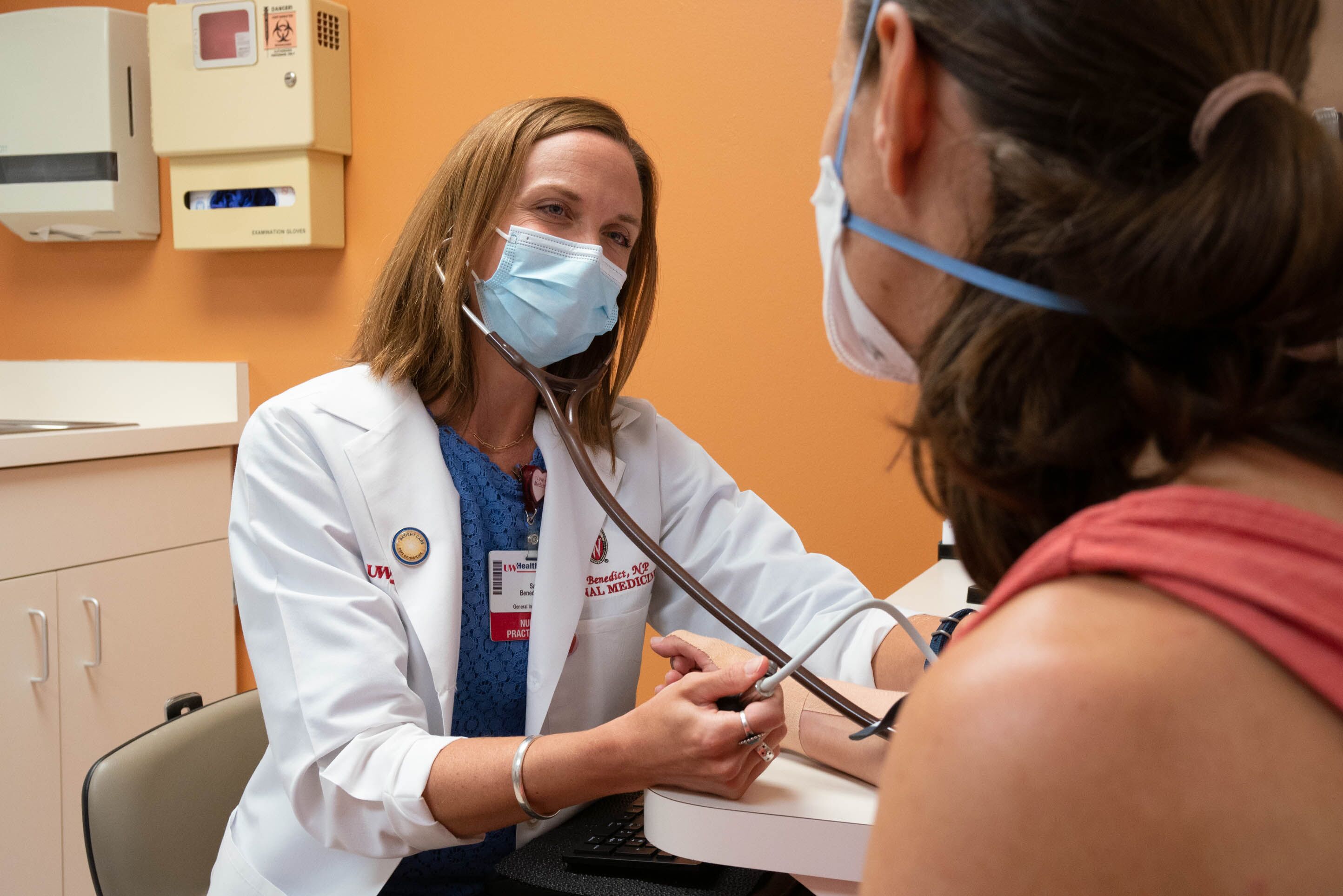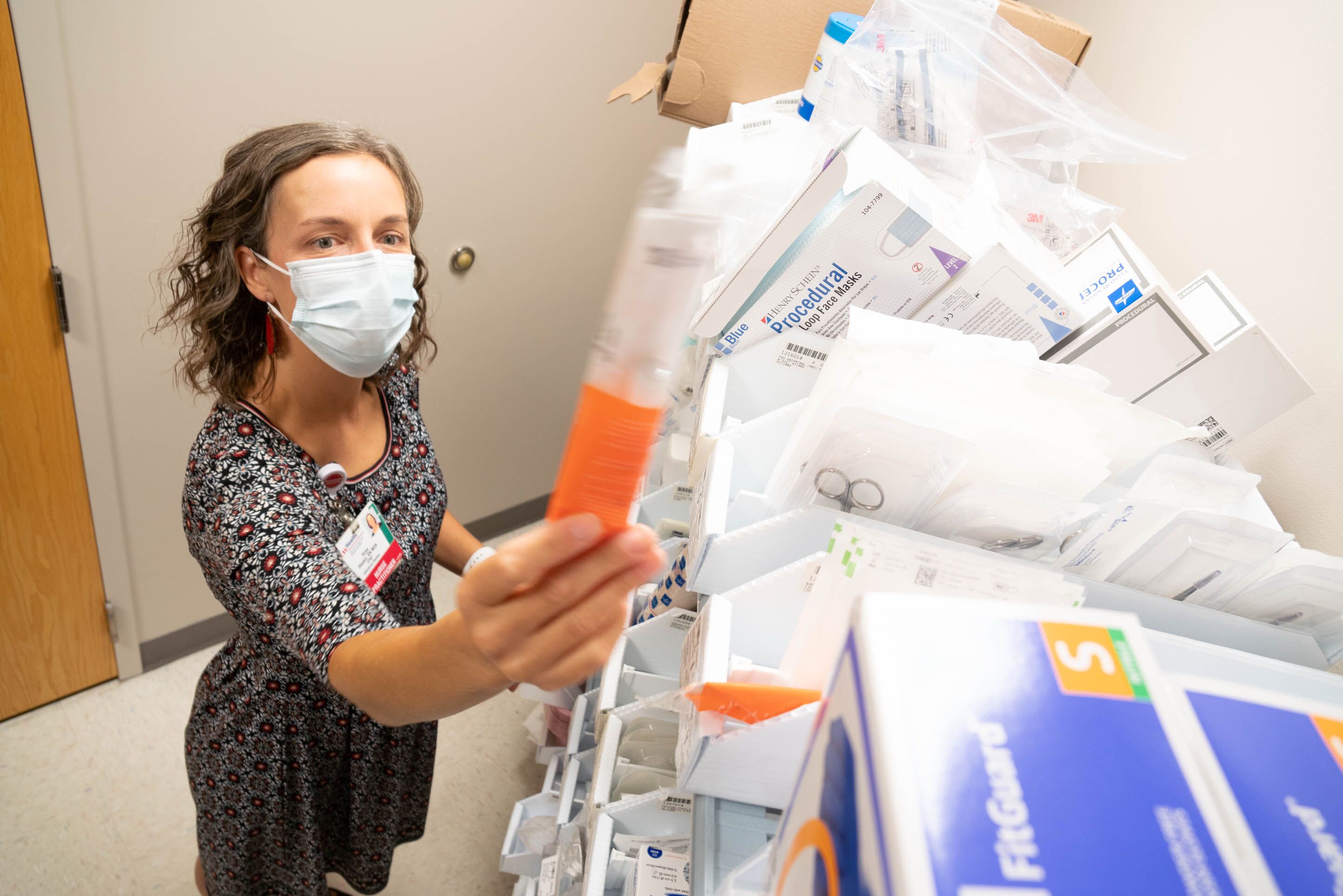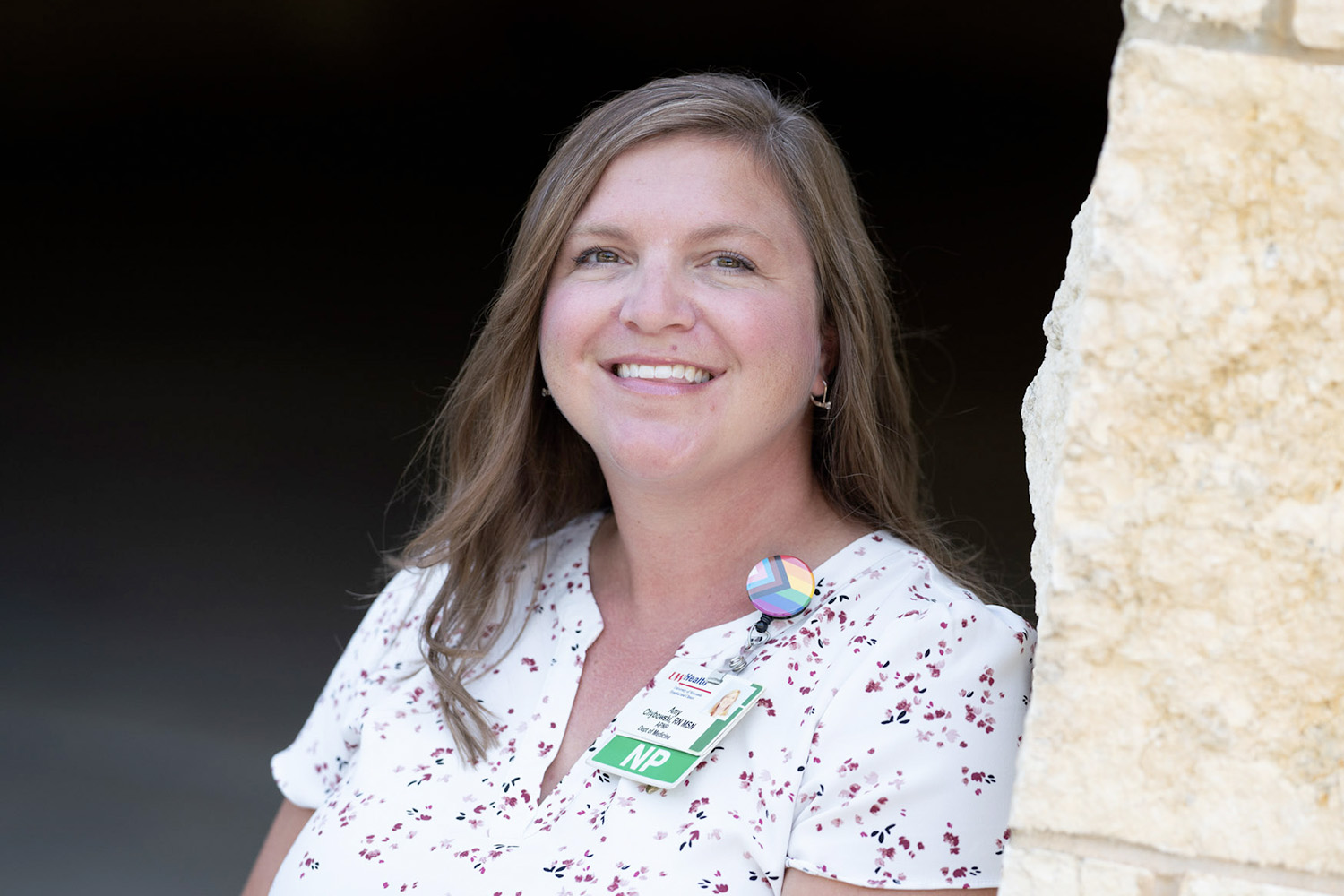
APP spotlight
Amy Chybowski, Nurse Practitioner and APP supervisor
Pulmonary and Critical Care, University Hospital
What are you doing in your work area that is interesting and new?
I’ve been collaborating with Jenna Brink, PA, on a special medical ICU (MICU) project in our respective departments. In early 2021, it became apparent that there would be a significant gap in staffing for the MICU service at University Hospital due to changes in graduate medical education (GME) programming. We identified that expansion of the APP team and role could be a sustainable long-term solution. Hiring and onboarding multiple new APP team members to close this gap would take considerably longer than the six-month timeframe in which the coverage was needed. Working with several amazing colleagues, we launched an ongoing partnership between the DOM and DEM APP team. Jenna and a cohort of the DEM APP teams continue to partner with the MICU team in staffing the MICU service at University Hospital. It has been very rewarding to see our pilot evolve into a successful collaborative relationship that promotes APP Scope of Practice and supports professional fulfillment.
What do you love most about working at UW Health?
I’ve worked at UW Health for nearly 15 years, first as a nurse on the night shift in the Trauma and Life Support Center and now 11 years as a nurse practitioner in Pulmonary and Critical Care. I have always valued how UW Health supports professional development and advancement. Additionally, UW Health demonstrates a commitment to inclusivity and engagement of APPs in organizational committees and leadership roles, ensuring each provider is represented and supported to maintain professional fulfillment and well-being.
What are a few words you use to describe your co-workers and team at UW Health?
I am humbled every day by the talented individuals I work with. It takes a village to provide remarkable health care while also caring for each other when challenges undoubtedly arise. Each person I work with provides their unique contribution to promote strong teams that have demonstrated perseverance and commitment to our patients and one another. My colleagues make me a better APP and I wouldn’t be here without them.
What have your patients taught you about yourself?
What haven’t my patients taught me is really the question. They have taught me how to truly listen and try to understand their experience. They have taught me how to build trusting relationships that allow us to make decisions together in selecting medical testing and treatment that aligns with their values and preferences.
Tell us about your family.
I live with my husband and two children in Middleton. We love the Madison area and have had so much fun meeting families across the city through soccer, swimming and baseball. The support I receive from my family has been invaluable in allowing me to be where and who I am today.
What are your special interests?
I enjoy reading, especially mysteries, hiking and tent camping with my family. I’m super excited about the filming of Top Chef, Season 21, in Wisconsin.
Outside of work, what did you accomplish in the last year that makes you proud?
I planted flowers from seed this year for the first time and have a fabulous bunch of zinnias and cosmos.

